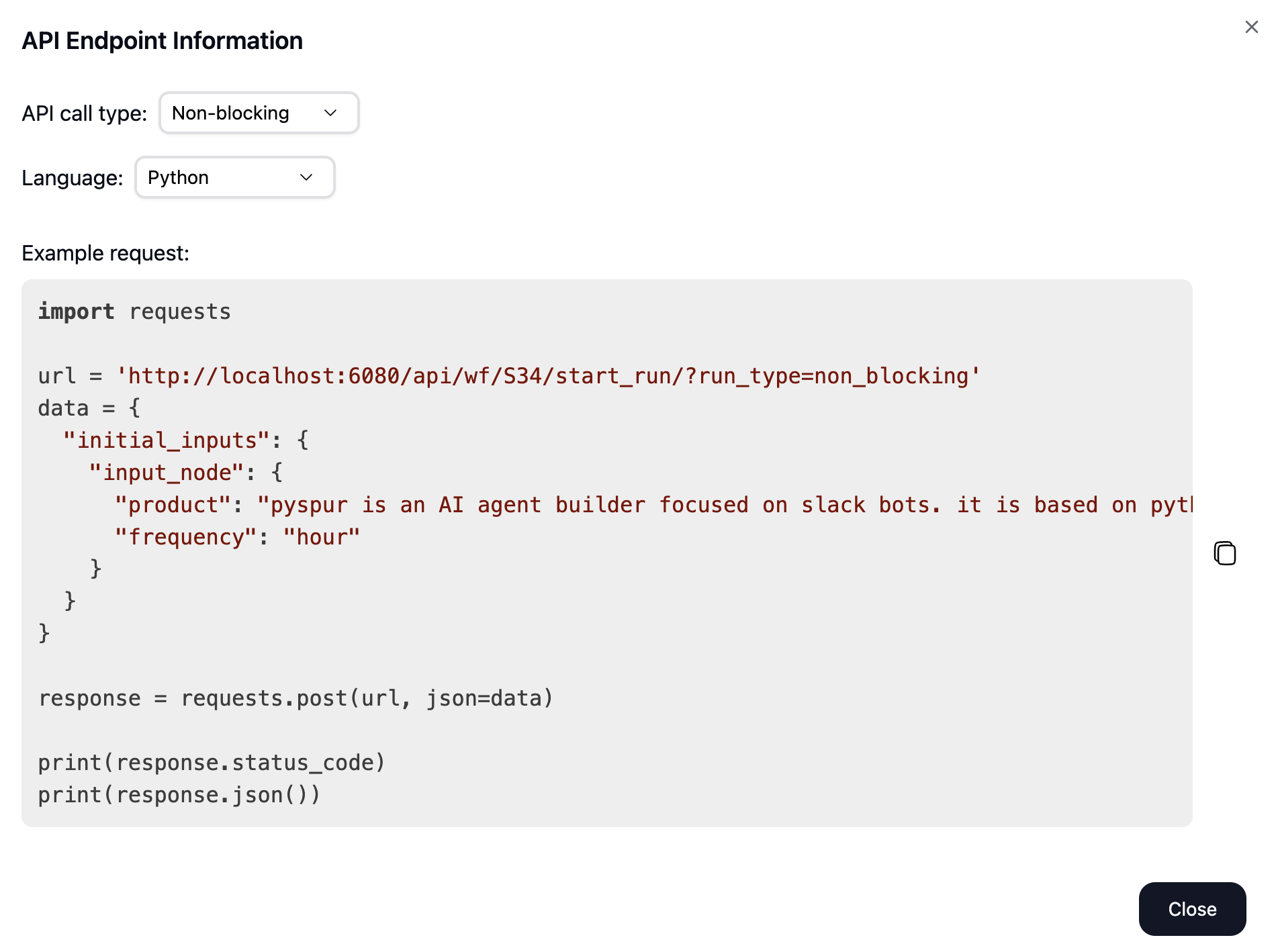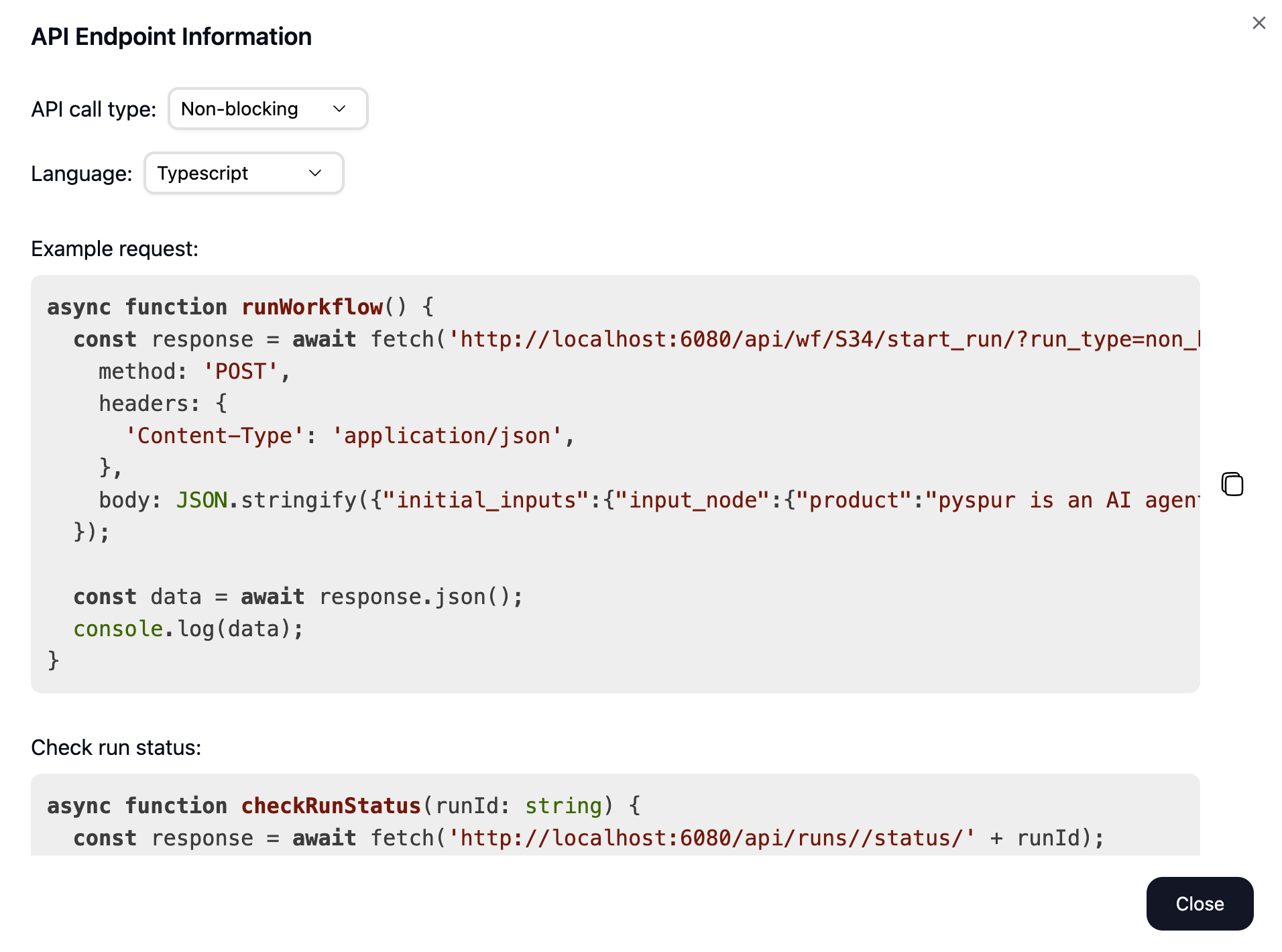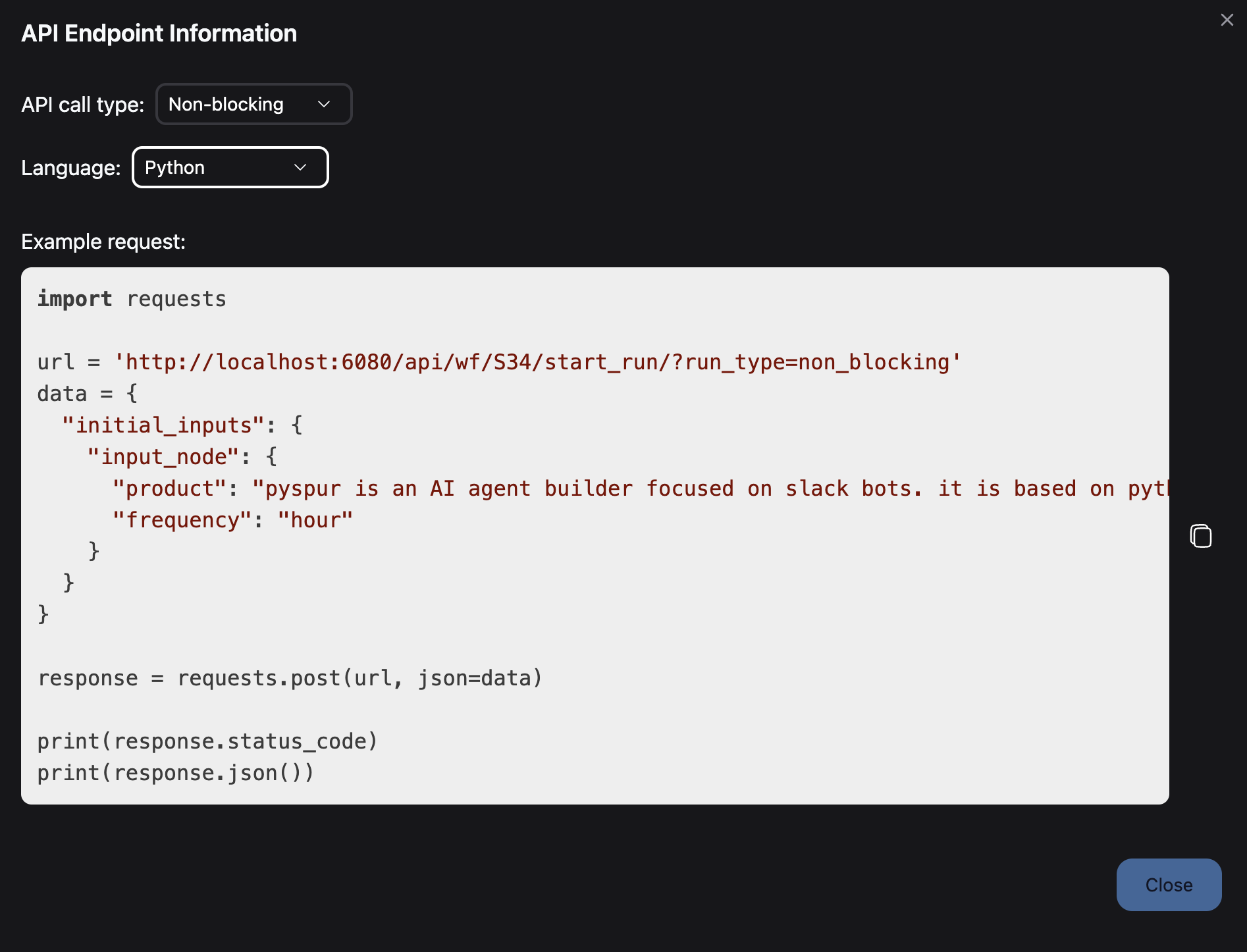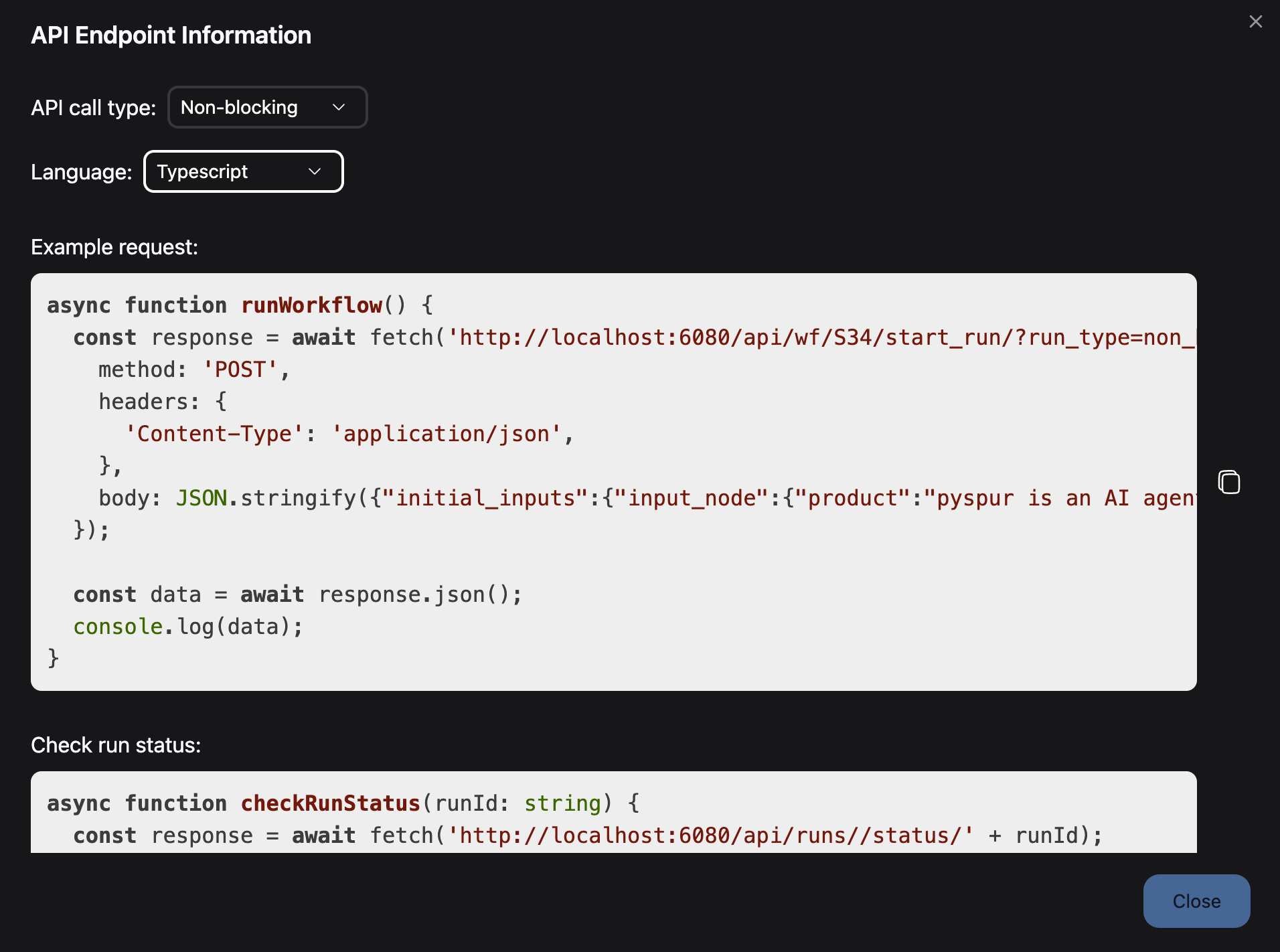One-Click Deployment
PySpur makes it incredibly easy to deploy your workflows as production-ready APIs with a single click.Choose deployment options
In the modal that appears, you can configure:

- API call type: Choose between blocking (synchronous) or non-blocking (asynchronous) calls
- Programming language: Select your preferred language for the code example


API Call Types
PySpur supports two types of API calls when deploying your workflows:Blocking (Synchronous)
Blocking (Synchronous)
Use blocking calls when:
- You need immediate results
- The workflow completes quickly
- You want to process the response in the same request
Non-Blocking (Asynchronous)
Non-Blocking (Asynchronous)
Use non-blocking calls when:
- Workflows may take longer to complete
- You want to decouple request and response
- You need better scalability for long-running tasks
Code Examples
The deployment modal provides ready-to-use code examples in various programming languages:- Python
- JavaScript
- Shell
Advanced Deployment Options
Batch Processing
Run your workflow over a dataset with the batch processing APIProvide a dataset ID and mini-batch size to process large datasets efficiently.
Cancellation
Cancel in-progress workflows when neededThis is useful for stopping long-running or paused workflows.
Run Control
PySpur provides full control over your deployed workflows with APIs for:
- Listing all runs of a workflow
- Retrieving run status
- Handling human-in-the-loop interventions
Security Considerations
When deploying workflows as APIs, consider:- API Authentication: Add appropriate authentication to your PySpur instance
- Input Validation: Ensure workflows validate inputs properly
- Error Handling: Implement robust error handling in your client code



